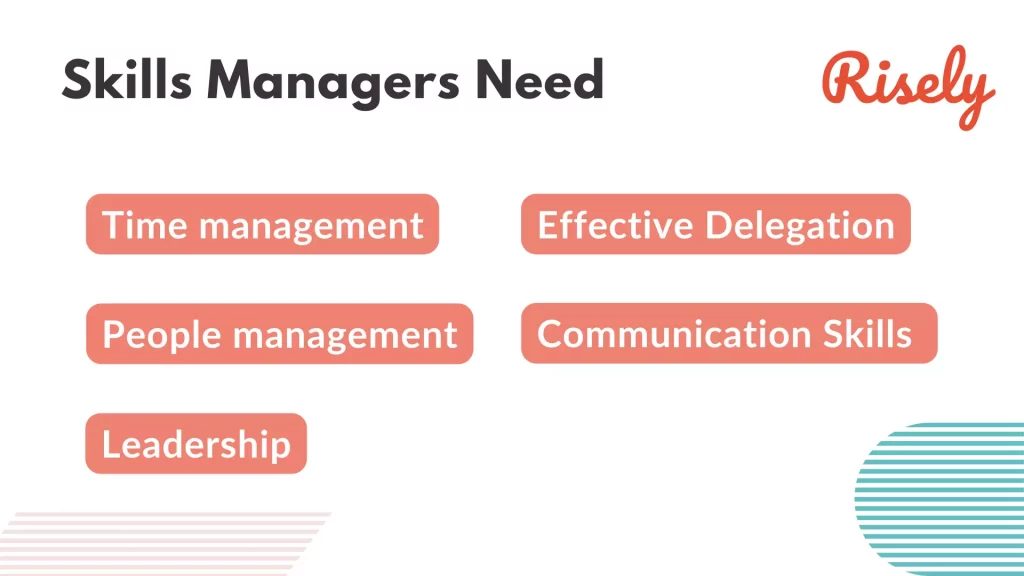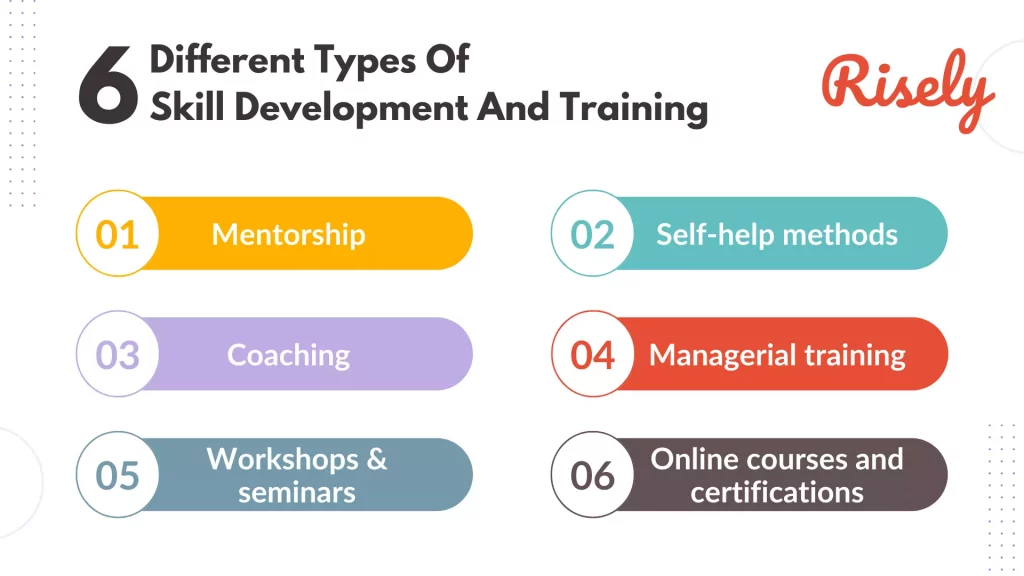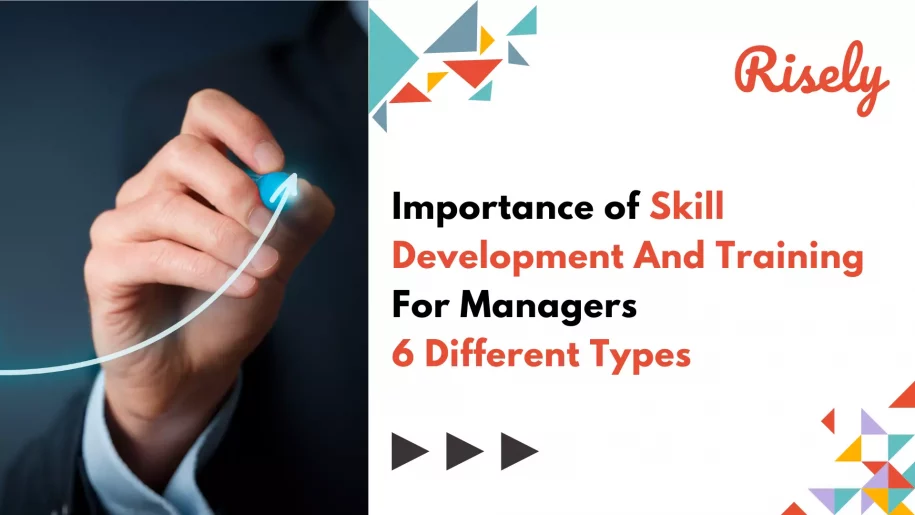Why Do Managers Need Skill Development And Training? 6 Top Ways
Managers in the office have a lot of responsibilities, and it can be challenging to keep up with everything. You may suffer from limited opportunities or poor performance if you cannot develop or train your skills effectively. In the modern workforce, skills and training are more important than ever. Employees need to be proficient in a wide range of tasks, and managers and leaders, in particular, need to be skilled and equipped to lead successfully. This is because skills and training help managers perform at their best and can even enable them to advance within their organization. Read on to learn more about skill development and training and their various methods!Why Is Leadership Training Important?
Skill development and training are essential for managers in the office. As the workforce changes and new skill sets are required, managers must be proficient in as many skill sets as possible. This way, they can adapt to lead and manage their team effectively. Skill development and training help managers develop skills in areas like communication, problem-solving, critical thinking, and leadership. In the long run, this will help them be successful in the ever-changing workplace environment. Skills development and training can help you learn new information quickly and improve your overall knowledge base. This will make it easier for you to stay current on trends and developments in your field and identify potential challenges before they become problems. In addition, developing new skills will allow you to take on additional responsibilities more confidently. Moreover, skill development is vital for managers concerning the changing climate in which teams operate. With frequent movements in the industry and technology, managers need to be at the top of their game to lead winning teams. As the focus shifts, new management styles and more efficient techniques grab the spotlight. Hence, managers need to adopt continuous learning as one of their key mantras. Leadership training has now become easier than ever with Risely. Risely is an AI-enabled leadership coaching platform for managers to hone their leadership skills through unique learning journeys. It provides customized solutions to the typical people management challenges that managers face. Get started with your free 14-day trial now.What Skills Do Managers Need?
In order to manage a team effectively, managers need to possess several skills. The critical skills of managers include:
Time management
Time is of critical value for teams in the present world. Managers need to be able to manage their time well for them to lead and manage their team effectively. Time management skills include prioritizing tasks, setting deadlines, and managing work/life balance. This also includes setting smart goals and ensuring deadlines are achieved on time.People management
Managers need to manage people effectively to ensure that the team is productive. People management skills include communicating with staff members, setting expectations, and motivating staff members. In addition, managers need to be able to handle conflict effectively for the team atmosphere not to be disrupted.Leadership
In today’s world, leadership is critical for success. Leaders need the ability to set clear goals and standards and motivate their teams toward achieving those goals. They also need good problem-solving skills to identify challenges and find solutions when they arise. Further, they need to be able to make a decision quickly and adopt analytical thinking in their style.Effective Delegation
As a leader, it is essential to delegate tasks effectively. It involves delegating work without micromanaging and ensuring that the job is completed efficiently. Effective delegation skills include setting clear goals for the empowered worker, providing feedback, and expecting results within the assigned timeframe. Moreover, this includes your ability to identify the right person who can take up responsibilities and manage tasks efficiently.Communication Skills
Leaders need to communicate with their team effectively. This includes listening and understanding what individuals are saying, conveying your message clearly and concisely, providing timely feedback, and responding to questions appropriately. Additionally, effective communication skills include being able to build relationships with co-workers. These are the critical skills of a manager. However, the list is certainly longer. Efficient management requires mastery of many skills. In order to achieve that, there are many methods that you can use. In order to be a successful manager, it is essential that managers continuously learn new skills and develop their abilities. They need to incorporate continuous learning into their professional development plans to stay ahead of the curve and remain proficient in their skillset. By engaging in continuous learning activities, managers can build upon their existing knowledge base and expand upon those skills, which will help them succeed as a leader within the team environment.Different Types Of Skill Development And Training for Managers
Managers must keep up with industry trends and changes in today’s competitive workplace. That’s where skill development and training come in. Many types of training are available, so find one that best suits your needs. The most common forms of skill development and training for managers are:
Mentorship
This type of training allows managers to learn from someone with more experience and knowledge. A mentor can provide advice, guidance, and support as you work to develop your skills. They are equipped with the required skills and experience, as they have already undertaken the journey you are about to embark on. Moreover, mentors can provide great constructive feedback from their understanding of your concerns and ability to relate to your issues. Generally, leadership mentors train employees to take up senior and leadership roles similar to their own.Coaching
Coaching is a form of mentorship that helps individuals work through personal issues and develop more essential skills. The coach primarily provides feedback, support, and training to help individuals achieve their goals. Additionally, coaches can offer advice on how to overcome obstacles in one’s career path. Coaches typically have experience working with individuals in similar fields to their clientele. They also possess expertise across various areas that strengthen a manager’s abilities. Further, having access to the exclusive focus of a coach can be a game changer for managers, as they get their route set out for them by a much more knowledgeable person. This type of coaching is typically informal and tailored to the manager’s individual needs. It can take many forms, including one-on-one sessions, group meetings, workshops, or online tutorials. You can read more about leadership coaching here.Self-help methods
Self-help methods include several techniques that managers can use without external help. These methods do not require a considerable monetary investment. However, they run on the intrinsic motivation of the individual. Moreover, finding the appropriate path amidst a barrage of information in the self-help world can be challenging, especially for beginners. They can provide helpful guidance and advice on career growth, networking, and leadership development. Generally, self-help methods include books, YouTube videos, podcasts, etc. Explore the various self-help methods for developing managerial skills here.Managerial training
Management training can be broadly classified into on-the-job, executive education, and customized management training. On-the-job learning is the most basic form of managerial training and takes place during the employee’s actual job duty. Executive education programs provide managers with in-depth knowledge about various aspects of business administration. Customized management training allows businesses to design tailored courses specifically for their needs and employees. Attending a management program includes developing better leadership skills, acquiring new insights about specific areas within the business world, enhancing one’s understanding of the business environment, and reinforcing one’s existing knowledge. Check out the things to know before enrolling in a managerial training program.Workshops and seminars
Workshops and seminars offer participants the opportunity to learn from experts in various fields. This learning provides valuable opportunities for gaining new insights, increasing understanding, and developing skills. Workshops can provide an overview of a specific topic, or they may focus on particular tools or techniques that are useful in the workplace. Seminars allow attendees to explore various aspects of a given subject matter in-depth. They also provide an opportunity for networking with fellow learners and practitioners. Know more about leadership workshops and seminars here.Online courses and certifications
Online courses and certifications allow learners to take on-the-go learning opportunities. They can be accessed from any device, at any time, and outside the traditional classroom setting. This type of learning enables individuals to gain new skills more easily and quickly than traditional methods. Online courses are also often available in various formats, including self-study programs, video lectures, and interactive lessons. Certifications provide an official stamp of approval that confirms that one has mastered a particular skill or knowledge area. These can be a great addition to your formal education and learning. In the end, skill development and training can help you become more effective and efficient in the workplace. So, if you’re considering investing in skills development training for your team, don’t hesitate – it could be the best decision you ever make!Other Interesting Reads
Which Method Should You Choose?
There are several different methods you can use for skill development and training. There is no one-size-fits-all answer to this question, as the best skill development and training method will vary depending on your needs and preferences. Some popular options have been listed above. However, there are a few critical limitations that most of the above methods suffer from. These include:- Time-consuming
- Training is not adapted to the needs
- Expensive
- Lack of compatibility
- Missing real-time support
- Retention is challenging

Conclusion
Managers in the office need to be well-rounded and skilled to lead their teams effectively. Managers and leaders must combine various skills and knowledge to create a successful and productive workplace. This blog has outlined various skills that need development in a manager and the various training and development programs available that can help you achieve this. Continue visiting us to learn more and put these skills to use in your workplace!!Grow faster with the growth mindset! Throw away self-imposed limitations.
Download the free growth mindset toolkit today to understand how a growth mindset fuels rapid development.
FAQs
What is managerial skill development?
Managerial skill development refers to enhancing managers’ abilities and competencies in areas such as leadership, communication, decision-making, problem-solving, and team building. It involves training, coaching, and mentoring activities designed to improve the effectiveness and performance of managers, enabling them to achieve organizational goals and objectives.
What is the impact of manager’s skill development on team?
Managerial skill development can positively impact the team by improving the manager’s ability to lead, communicate, and work collaboratively with team members. This can increase motivation, productivity, and job satisfaction among team members. In addition, effective managers who possess strong skills can create a positive work culture, foster a sense of trust and respect, and help their team achieve its goals.
What are the benefits of skill development and training?
Skill development and training have several benefits, including improved job performance, increased productivity, enhanced job satisfaction, and higher employee retention rates. It can also lead to career advancement opportunities, increased confidence, and greater accomplishment. Additionally, training and development can help organizations stay competitive by keeping employees up-to-date with the latest industry trends and best practices.
Which is the most important skill a manager need to develop?
While all managerial skills are important, the most critical one is effective communication. A manager who can communicate clearly and effectively with their team members, superiors, and stakeholders can build trust, resolve conflicts, and foster a positive work culture. Effective communication also helps managers delegate tasks, provide feedback, and convey organizational goals, improving performance and productivity.
Other Related Blogs
10 Must-Have Soft Skills for Managers and How to Build Them in 2023?
10 Must-Have Soft Skills for Managers and How to Build Them in 2023? When it comes to management, skills are everything. And that’s why soft skills are so crucial in…
Top 10 Behavioral Competency Based Interview Questions for Managers
Top 10 Behavioral Competency Based Interview Questions for Managers Success in the workplace is about more than just technical skills and expertise. It also requires mastering behavioral competencies that contribute…
11 Transferable Skills Examples: Understand Why It Is Important With Example
11 Transferable Skills Examples: Understand Why It Is Important With Example Have you ever wondered what makes certain professionals shine, effortlessly transitioning from one role to another? The secret lies…
How To Improve Verbal Communication In The Workplace? 5 Proven Tips
How To Improve Verbal Communication In The Workplace? 5 Proven Tips We talk a lot. To be honest, we do, but without paying much heed to what it’s creating. But…


